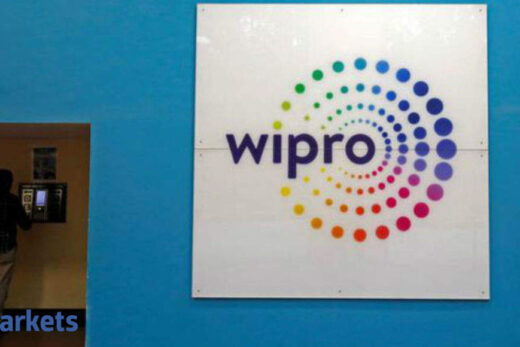The BSE Sensex fell 870.51 points or 1.74 per cent to close at 49,159.32, having plunged almost 2.3 per cent during trade. NSE’s Nifty declined 229.55 points or 1.54 per cent to close at 14,637.80, recovering from a drop of 2.7 per cent earlier in the day.
Covid-19 cases had been inching up in recent weeks but investors hadn’t been perturbed over expectations that the government wouldn’t put a lockdown in place as the economy limps back to recovery.
Though the controls on travel and business activity in Maharashtra announced on Sunday evening are moderate compared with last year’s nationwide lockdown, analysts said the market is yet to factor in the possibility of stricter action by the administration if cases mount.

“If we see more cases, more curbs or restrictions will follow,” said Rajat Rajgarhia, CEO, Motilal Oswal Institutional Equities. “At 15,000 Nifty levels, there will be volatility given the elevated levels.”
Shares of lenders led the sell-off Monday.
Bajaj Finance slumped 5.7 per cent, IndusInd Bank dropped 5.5 per cent while State Bank of India (SBI) declined 4.5 per cent.
Banks and financials have been the top gainers since early November as positive news started coming in about vaccines against Covid-19.
So far, five states–Maharashtra, Punjab, Gujarat, Madhya Pradesh and Karnataka–have imposed restrictions of some sort. Those in Maharashtra—the state with the highest infections—are the most stringent so far.
CLSA said continuous spikes in Covid-19 cases and further restrictions remain a clear risk to the pace of economic revival. States will be cautious about curbs, besides which India’s vaccine drive is well under way.
“The reactions of governments now will be more calibrated compared to last year,” said Rajgarhia. “We are also raising vaccination levels, so we should be able to overcome this phenomenon.”
While consumption led the turnaround in FY21, the industrial sector is still showing weakness, making it imperative for the government to ensure that business is not disrupted.
“It will be crucial to track the pace of the economic recovery from April in the face of price hikes due to rising commodity prices, the end of incentives like the stamp duty cut and local restrictions due to the ongoing second wave of Covid-19 infections,” CLSA investment analyst Vikash Kumar Jain said in a note to clients.
The Nifty has shed 4.4 per cent since February 16—when it hit an all-time closing high of 15,313.45—amid sharp swings that have put investors on edge. The rise in US bond yields, which led to strengthening of the dollar, triggered the sell-off in emerging markets such as India. If Covid cases surge further in India and the region, investors may flee to safe-haven assets such as the dollar, making domestic equities less appealing.
The few Asian markets open on Monday rose, mirroring Thursday’s strength on Wall Street.



